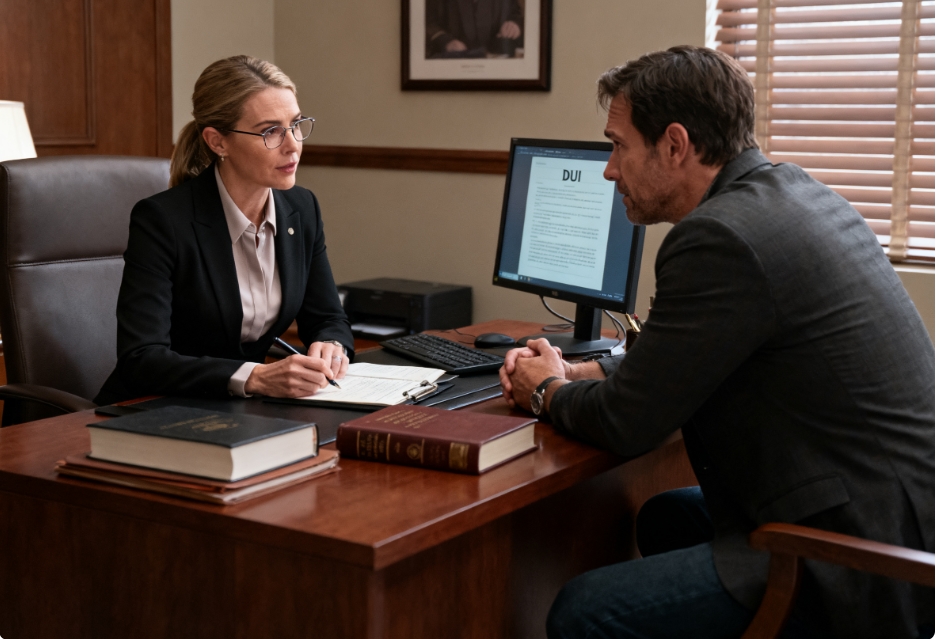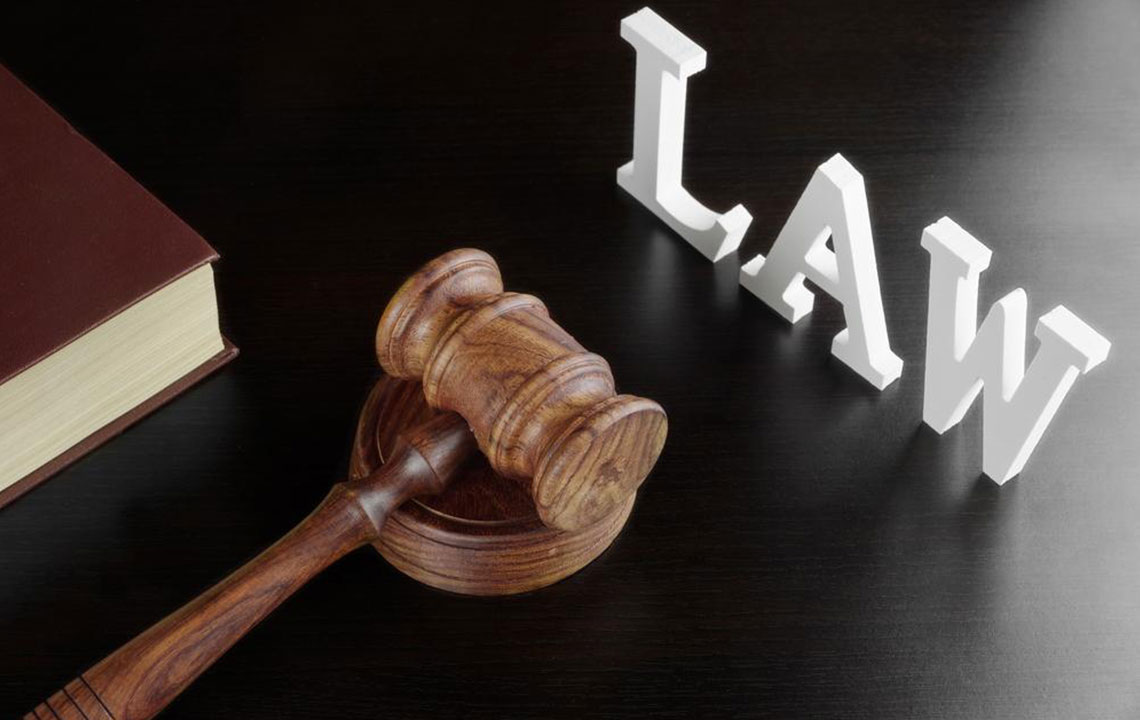What Should You Look for When Hiring a Driving Under the Influence Lawyer? The Complete Guide
Facing a DUI charge is a serious and complex process with severe consequences for your license, finances, and future. This essential guide details the critical factors to consider when selecting specialized legal representation. It emphasizes the importance of hiring a lawyer with exclusive focus on DUI defense, local courtroom experience, and a proven track record. The article provides key questions to ask potential attorneys to ensure they can build a strong defense, navigate both criminal and administrative cases, and protect your rights effectively.

Facing a charge of Driving Under the Influence (DUI) — sometimes known as DWI (Driving While Intoxicated) — is a profoundly stressful and high-stakes experience. The moment the flashing lights appear in your rearview mirror, a process begins that can threaten your driver's license, your financial stability, your freedom, and your future. In the fog of anxiety and uncertainty that follows an arrest, one decision emerges as the most critical: choosing the right legal representation.
A DUI is not a simple traffic ticket. It is a complex criminal offense that sits at the intersection of traffic law, criminal law, and administrative law. The consequences of a conviction are severe and long-lasting, often including jail time, hefty fines, mandatory ignition interlock devices, and a permanent criminal record that can affect employment, housing, and insurance rates for years to come.
Therefore, the question of "what should you look for when hiring a Driving Under the Influence lawyer" is not merely a practical consideration—it is the central strategic decision of your defense. This guide will walk you through every essential factor, from specialized experience and local knowledge to communication style and fee structures, to ensure you find an advocate who is equipped to protect your rights and fight for the best possible outcome.
Understanding the Stakes: Why a DUI Is Different
Before delving into the qualities of a good lawyer, it's crucial to understand why a DUI case demands specialized expertise. Unlike many other criminal charges, a DUI case is actually two separate legal battles fought on two different fronts:
The Criminal Case: This is the proceeding in criminal court where the state prosecutes you for violating the law. The goal here is to avoid a conviction, which carries penalties like jail, probation, community service, and fines.
The Administrative Case: This is a civil proceeding against your driver's license, typically handled by your state's Department of Motor Vehicles (DMV) or similar licensing agency. After a DUI arrest, you have a very short window (often as little as 10 days) to request a hearing to contest the automatic suspension of your license. If you miss this deadline, your license will be suspended, regardless of what happens in the criminal case.
A general practice lawyer or a family attorney is unlikely to be well-versed in the intricate, science-heavy defenses specific to DUI law. They may not know the latest challenges to breathalyzer calibration, blood draw protocols, or the nuances of arguing against probable cause for the traffic stop. A specialized DUI attorney navigates both these parallel battles simultaneously, using strategies in one to benefit the other.
Key Factors to Consider When Hiring a DUI Lawyer
1. Specialization and Exclusive Focus on DUI Defense
This is the single most important factor. You don't want a lawyer who "also handles" DUIs. You want a lawyer who focuses primarily or exclusively on DUI defense.
Why it matters: DUI law is a highly technical and constantly evolving field. It involves understanding forensic science (breathalyzer and blood test technology), field sobriety test administration standards, administrative law procedures, and case law that changes frequently. A dedicated DUI attorney eats, sleeps, and breathes these details. They attend national DUI defense seminars, are often members of organizations like the National College for DUI Defense (NCDD), and are continuously updating their knowledge on the latest defenses and legal challenges.
Questions to Ask:
"What percentage of your practice is dedicated to DUI defense?"
"Are you a member of any DUI-specific legal organizations (e.g., NCDD)?"
"How do you stay current with changes in DUI law and forensic science?"
2. Extensive Experience and a Proven Track Record
Experience is more than just the number of years practicing law. It's about the depth and quality of experience specifically with DUI cases in your local courts.
Why it matters: An experienced DUI lawyer has seen it all. They know how different prosecutors approach plea negotiations. They understand the tendencies of local judges. They have a long history of challenging evidence, cross-examining arresting officers and state toxicologists, and taking cases to trial when necessary. They can realistically assess the strengths and weaknesses of your case based on hundreds of similar situations.
Questions to Ask:
"How many DUI cases have you handled that are similar to mine?" (e.g., first-time vs. multiple offenses, with an accident vs. without, high BAC level)
"What is your success rate at DMV administrative hearings?"
"How often do your cases go to trial, and what have been your outcomes?"
"Can you provide examples of cases where you successfully got charges reduced or dismissed?"
3. In-Depth Local Knowledge
The law may be state-specific, but its application is hyper-local. Justice is administered differently from one county courthouse to the next.
Why it matters: A lawyer based in the city or county where you were arrested has invaluable inside knowledge. They have professional relationships with the prosecutors, clerks, and judges. They know which prosecutors are more lenient and which are tough. They know which judges are strict on certain procedural issues and which are more sympathetic to certain arguments. This knowledge allows them to craft a defense strategy tailored to the specific people who will decide your fate. A lawyer from another part of the state will lack this critical insight.
Questions to Ask:
"How familiar are you with the prosecutors and judges in [Your County] courthouse?"
"Have you handled cases in this specific courthouse before?"
"Based on your experience here, what is a likely outcome for a case like mine?"
4. A Meticulous Investigator and Case Analyst
A strong DUI defense is built on a foundation of meticulous investigation. A good lawyer will immediately begin dissecting every piece of evidence against you.
Why it matters: The arrest report is not gospel truth; it is the officer's version of events. A skilled attorney will scrutinize it for errors, inconsistencies, and violations of your constitutional rights. They will request maintenance records for the breath-testing machine (often called an Intoxilyzer, Datamaster, or EC/IR), calibration logs, and the operator's certification. If a blood test was involved, they will investigate the chain of custody of the sample and the credentials of the phlebotomist. They will look for any failure to follow proper procedure during field sobriety tests. Any breach of protocol can be used to suppress evidence, which can lead to charges being reduced or even dismissed.
Questions to Ask:
"What is your process for investigating a DUI arrest?"
"Do you personally review the evidence, such as dashcam and bodycam footage?"
"How do you challenge the accuracy of breathalyzer or blood test results?"
5. Strong Trial Credentials and a Willingness to Fight
While most cases are resolved through negotiation, the threat of a trial is a powerful bargaining chip. You need a lawyer who is not afraid to go to trial and has the skills to win.
Why it matters: If your lawyer is known as a fierce and successful trial attorney, prosecutors are more likely to offer a favorable plea bargain. If your lawyer always pleads cases out quickly, the prosecutor has no incentive to offer a good deal. You want an advocate who is prepared to take your case all the way to a jury if the state's offer is unreasonable. This "fighter" mentality is essential for achieving the best results.
Questions to Ask:
"What is your philosophy on taking cases to trial?"
"How many DUI jury trials have you personally handled?"
"What were the outcomes of those trials?"
6. Clear Communication and Client-Focused Approach
You are not just hiring a legal technician; you are hiring a counselor. You should feel comfortable with this person and confident in their ability to guide you through a confusing process.
Why it matters: Your lawyer should be able to explain complex legal concepts in plain English. They should be responsive to your calls and emails, keeping you informed at every stage of the process. They should set realistic expectations—not make grandiose promises—and make you feel like a priority, not just another case file. This is a stressful time, and having a lawyer who is accessible and communicative can significantly reduce your anxiety.
Questions to Ask (and observe during your consultation):
"Who will be my primary point of contact? Will I be working directly with you or with paralegals?"
"What is your typical response time for client calls or emails?"
"Can you walk me through the process, step-by-step, so I know what to expect?"
Did the lawyer listen to you, or did they do all the talking? Were they patient with your questions?
7. Transparent and Understandable Fee Structure
Legal representation is a significant investment, and you must understand exactly what you are paying for.
Why it matters: DUI attorneys typically charge in one of two ways: a flat fee or a retainer against an hourly rate. A flat fee is most common and covers all work up to and including a trial. Be sure to ask what is and is not included in that fee (e.g., costs for expert witnesses, filing fees, etc.). An hourly rate means you are billed for every hour of work on your case. Avoid lawyers who are vague about costs or who pressure you to sign a contract without explaining it fully.
Questions to Ask:
"What is your fee structure? Is it a flat fee or hourly?"
"What exactly does this fee cover? Does it include the DMV hearing?"
"Are there any other costs I should expect, such as filing fees or expert witness fees?"
"Will I get the fee agreement in writing?"
8. Professional Reputation and Client Reviews
A lawyer's reputation among peers and past clients is a powerful indicator of their quality and ethics.
Why it matters: Peer ratings from organizations like Martindale-Hubbell, Super Lawyers, or Avvo can signal a respected attorney. While these should not be the sole deciding factor, they can be a useful data point. More importantly, read client testimonials and reviews. Look for patterns in the feedback—do clients consistently praise their communication, diligence, and results?
What to Do:
Search for the lawyer's name on Google and Avvo.
Check their website for testimonials (keeping in mind these are curated).
Ask if they can provide references from past clients.
The Initial Consultation: Your Opportunity to Interview
Most DUI lawyers offer a free initial consultation. This is not just for them to learn about your case; it is your job interview for them. Come prepared.
Bring with you:
Your copy of the citation and arrest paperwork.
Any documents given to you by the DMV.
A written list of questions (like the ones suggested above).
A notepad to take notes.
Pay attention to:
Your comfort level: Do you trust this person?
Their confidence: Do they speak with authority about the law and the local courts?
Their interest: Are they engaged and asking detailed questions about your specific situation?
Their strategy: Do they propose a preliminary plan of action?
Red Flags to Avoid
Guarantees a Specific Outcome: No ethical lawyer can promise a specific result. The legal system is unpredictable.
Lack of Focus on DUI: The lawyer seems like a general practitioner who takes any case that walks in the door.
Poor Communication: They are difficult to reach, don't return calls promptly for the consultation, or seem distracted during your meeting.
Vague About Fees: They are hesitant to put their fees in writing or explain what is included.
Pressure to Hire Immediately: They use high-pressure sales tactics to get you to sign a retainer on the spot.
Conclusion: Investing in Your Future
A DUI charge is a serious matter, but it is not hopeless. The difference between a conviction with maximum penalties and a dismissal or reduced charge often comes down to the skill, dedication, and expertise of the lawyer you choose. By carefully evaluating potential attorneys based on their specialization, experience, local knowledge, investigative rigor, trial willingness, communication skills, and reputation, you can make an informed decision.
View the legal fee not as a cost, but as an investment in protecting your driving privileges, your criminal record, your financial well-being, and your future freedom. Taking the time to find the right Driving Under the Influence lawyer is the most important first step you can take toward putting this challenging chapter behind you.









